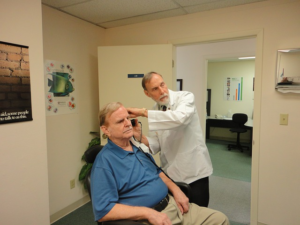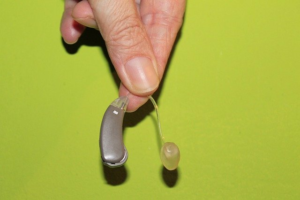Less than 20% of Brits with hearing difficulty seek professional help – PRNewswire
The results from the study of 2,000 UK adults* show that mostly, Brits are willing to wait to seek treatment until their hearing gets worse or affects their quality of life. Over half of Brits experiencing changes to their hearing, think that their hearing loss ‘isn’t that bad’. In stark contrast to these figures, Brits are much more concerned about noticing a difference with their eyesight, as 83% agreed that they would book an eye test as soon as they noticed a problem with their sight. Ov…….

The results from the study of 2,000 UK adults* show that mostly, Brits are willing to wait to seek treatment until their hearing gets worse or affects their quality of life. Over half of Brits experiencing changes to their hearing, think that their hearing loss ‘isn’t that bad’. In stark contrast to these figures, Brits are much more concerned about noticing a difference with their eyesight, as 83% agreed that they would book an eye test as soon as they noticed a problem with their sight. Over three quarters said they would book an eye test if they experienced regular headaches.
The survey also revealed that almost half (47%) of Brits that have been diagnosed with hearing loss and choose not to wear hearing aids, do so because they ‘cope’ without, and even Brits that do have hearing aids are choosing not to wear them because they believe they also cope without (27%).
Thomas Behrens, Chief of Audiology, Oticon commented: “It is really important that hearing loss is treated. Even if a person feels they are coping, they are potentially putting themselves at risk for future health problems, not to mention missing out on a full hearing experience. Hearing loss is degenerative, worsening with age and noise exposure, and because we allow ourselves to get used to reduced hearing, we can often not realise just how bad it has become. Most importantly, people do not realise that they are not the best version of themselves. With hearing loss, the brain has to work harder and becomes overloaded, which makes you more tired, and the brain has less capacity to remember, so really, untreated hearing loss challenges who you are as a person.”
On top, untreated hearing loss can have a significant impact on health. For example, the overloaded brain is often left lacking the important exercise and positive stimulation achieved through good communications and active lifestyle, which are known to protect the brain against aging. This means that some typically age-related diseases, such as dementia, are accelerated. People living with reduced hearing tend to withdraw from social activities, which can increase the risk of depression. Also, hearing loss can even change the way the brain functions as it compensates for the lack of sound information that it receives by utilising other senses to help. However, the survey reveals that consequences are relatively unknown. Only 14% know that untreated hearing loss can speed brain ageing, only 20% know that brain functionality is altered, and less than half realise that hearing loss can lead to depression.
Choosing not to wear hearing aids
In addition to simply coping, Brits with diagnosed hearing loss gave other examples of reasons for not having hearing aids, including, that it makes them feel old, it is too much hassle, or they …….







